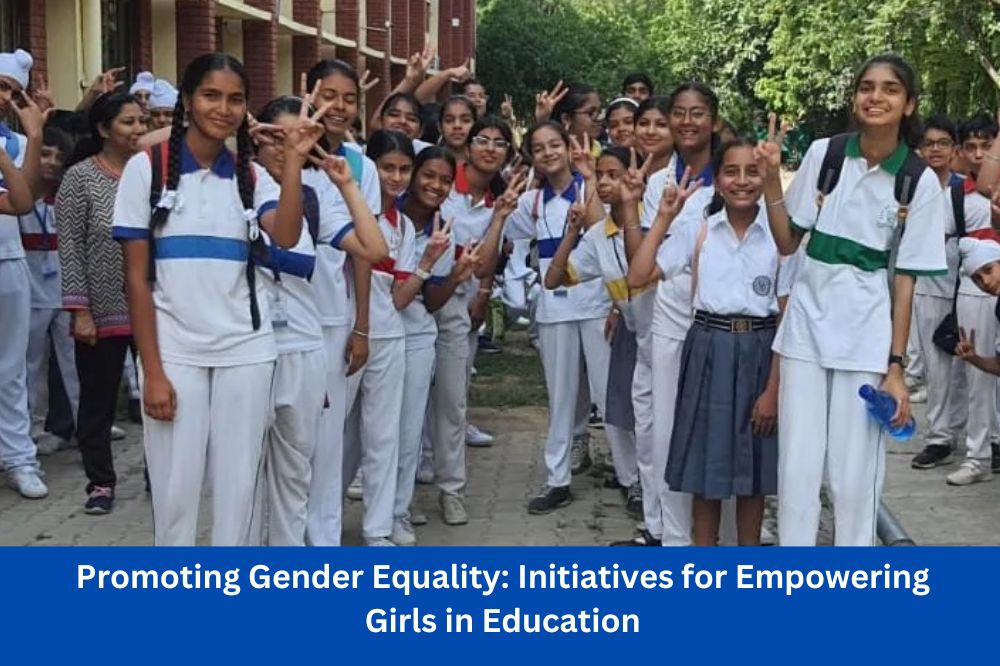Introduction
In the pursuit of promoting gender equality in education, Banyan Tree School has emerged as a beacon of empowerment for girls, recognised as the Best Play Schools in Chandigarh. This strategic collaboration aims to lay a robust foundation for girls from their earliest years, ensuring they receive equal opportunities and support to thrive in their educational journeys. This article explores the various initiatives undertaken by the School to empower girls and promote gender equality within its educational framework.
Early Education and Its Impact on Gender Perception
The role of early education in shaping perceptions and attitudes towards gender roles cannot be understated. Recognizing this, the School has implemented curriculum reforms that emphasize gender neutrality. From the selection of toys and activities that promote equal participation to stories and lessons that challenge traditional gender roles, these foundational years are critical in empowering girls.
Curriculum Innovations
The School has overhauled its curriculum to include more content that highlights the achievements of female leaders across various sectors. The history lessons feature prominent women such as scientists, politicians, and activists, ensuring that students see these figures as role models. Literature classes discuss works by female authors, fostering a deeper appreciation and understanding of women’s contributions to the arts and society.
Leadership and Mentorship Programs
One of the standout initiatives is the Leadership and Mentorship program specifically tailored for girls. Senior female students and alumni are paired with younger girls, providing mentorship and guidance. This program not only fosters a sense of community among the students but also empowers young girls to aspire for leadership roles, seeing firsthand the successes of their predecessors.
STEM Education for Girls
Understanding the gender gap in STEM fields, School has introduced specialized programs to encourage girls to pursue science, technology, engineering, and mathematics. These include workshops, guest lectures by women in STEM careers, and practical experiments that are designed to be inclusive and appealing to girls. This proactive approach aims to debunk stereotypes and build confidence among female students in their abilities to excel in these areas.
Scholarships and Financial Support
To ensure that financial constraints do not hinder the educational prospects of talented girls, it offers scholarships specifically for female students. These scholarships cover various aspects of education, from tuition fees to resources needed for research and project work, enabling girls to pursue their academic interests without economic barriers.
Sports and Physical Education
Recognizing the importance of physical development and the role of sports in fostering teamwork and resilience, the School promotes equal participation in sports. Initiatives include mixed-gender teams and coaching clinics for girls in sports where they are traditionally underrepresented. These efforts aim to normalize the presence of women in all sports arenas, reinforcing the message of equality.
Sensitization Workshops and Awareness Programs
Regular workshops on gender sensitivity are conducted for students, staff, and parents. These workshops address unconscious biases and promote a more inclusive school environment. They also serve as platforms for discussing issues related to gender discrimination, providing students with the tools and language to articulate and challenge such issues.
Collaboration with NGOs and Women’s Organizations
The School collaborates with various NGOs and women’s organizations to conduct seminars and workshops that empower girls. These collaborations provide students with access to broader networks and resources, further enhancing their education and personal development.
Monitoring and Evaluation of Gender Equality Initiatives
To assess the impact of its gender equality initiatives, the School has set up a monitoring system that tracks the progress of female students across various parameters. This data is used to refine and improve the initiatives, ensuring that the school continues to be a leader in promoting gender equality in education.
The journey towards gender equality in education does not end with these initiatives. School’s ongoing commitment to nurturing an environment where girls can excel is pivotal in challenging and changing societal norms. Here are additional strategies and future directions that the school could explore to continue advancing this crucial cause:
Expanding Parental Engagement
The School recognizes the vital role that parents play in shaping their children’s attitudes towards gender roles. By expanding parental engagement, the school aims to educate and involve parents in its gender equality initiatives. Workshops and seminars designed for parents can help extend the values of gender equality into the home, reinforcing the messages taught in school and promoting a cohesive approach to gender-sensitive upbringing.
Utilizing Digital Platforms for Wider Impact
In today’s digital age, the School has the opportunity to leverage online platforms to extend its gender equality initiatives beyond the classroom. By creating digital content such as webinars, interactive courses, and virtual mentorship programs, the school can reach a wider audience. This not only helps in spreading awareness but also allows girls from different geographical locations to benefit from the school’s resources and support networks.
Conclusion
Banyan Tree School’s commitment to gender equality is a testament to its dedication to fostering an inclusive and empowering educational environment. Through its comprehensive initiatives with the Primary Schools in Chandigarh, the school is not only enhancing educational opportunities for girls but also setting a benchmark for others to follow. As these efforts continue to grow and evolve, the impact on society’s perceptions of gender roles promises to be profound and far-reaching.
By embracing these initiatives, the School not only contributes to the personal growth of its female students but also propels societal progress towards true gender equality. The foundation laid in these educational settings is crucial, as today’s empowered girls will become tomorrow’s leaders, continuing to break barriers and pave the way for future generations.

